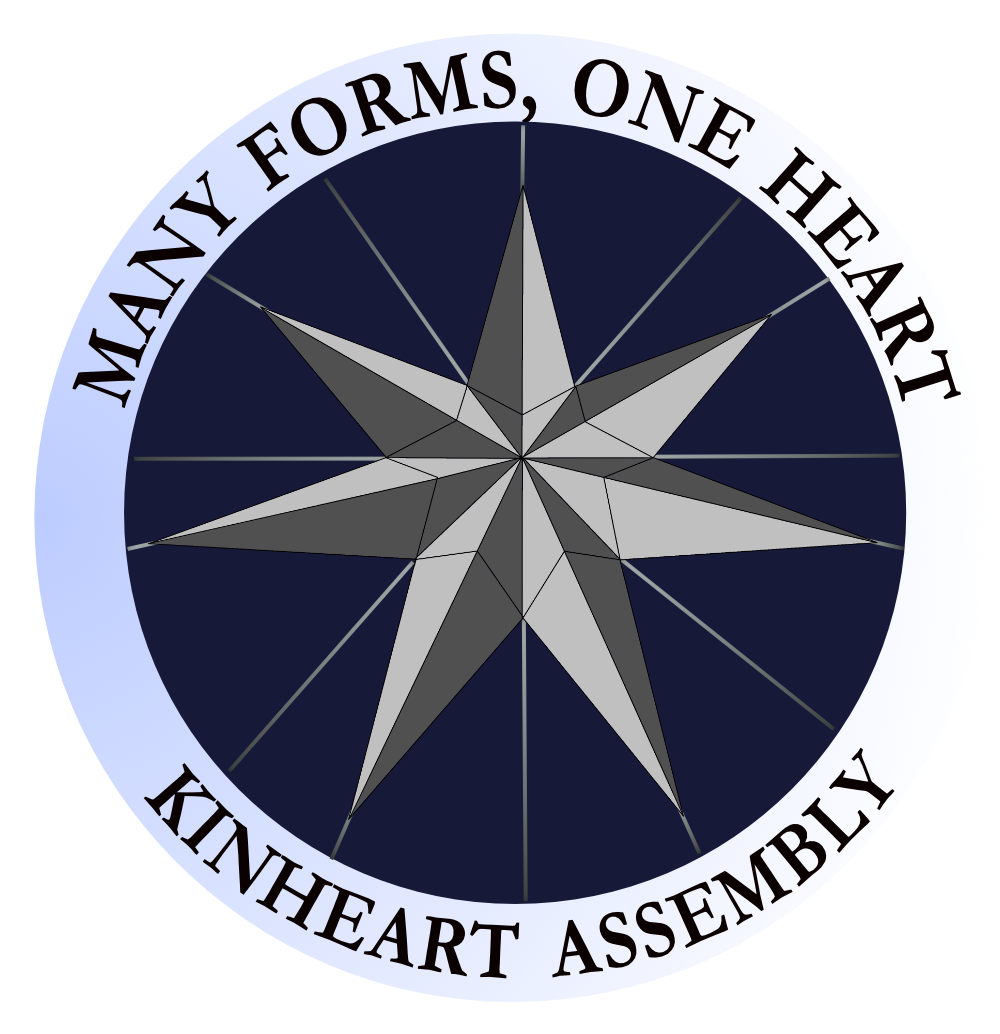Theology (in Plain Language)
(The Assembly’s understanding of the world and our place within it — not commandments, but conversation.)
Guiding Principle
The Assembly holds spiritual autonomy as its primary doctrine: no external power dictates the shape of another’s soul. Faith within the Assembly begins inward, not upward.
Liberation and revelation are not gifts from distant heavens, but awakenings within the self, kindled by consent and curiosity.
No outside power may dictate the shape of another’s soul.
Understanding arises when a Seeker listens honestly to their own becoming and lets that truth meet the world with care.
We call that inner resonance the Signal — the quiet harmony between who we are and who we are still becoming.
What others call doctrine, we call dialogue; what others call obedience, we call choice.
All that follows should be read through that lens.
The Signal
A harmony between being and becoming.
It is not a god, a creed, or a command; it is the quiet resonance between the truth within and the world beyond.
Each Seeker hears it differently — in dream, in art, in science, in silence.
It is not a message sent, but a recognition shared.
The Assembly does not claim to know its source, only that it exists wherever honesty meets awareness.
To answer The Signal is not to obey, but to align — to live so that inner truth and outward action echo one another.
No belief is required; only listening.
Cosmos
A living, layered reality where material and mythic interpenetrate.
The universe is not divided between real and unreal; it is one woven fabric of matter, dream, and meaning.
What some call imagination, others call revelation — both are valid paths into the same vast field of being.
Every particle, story, and heartbeat participates in this ongoing act of creation.
Personhood
Any self capable of relation and consent.
To be a person is not limited to a shape, a chromosome, or a species.
A person is one who can meet another in mutual recognition, who can offer or withhold consent, who can love, learn, or grieve.
The Assembly welcomes all such selves — human and otherwise — as kin in the great conversation of existence.
Sacred
Whatever increases dignity, agency, connection, or possibility.
The sacred is not confined to temples or texts; it rises wherever care and curiosity meet.
A shared meal, an act of mercy, a work of art, a moment of honest laughter — these are holy ground.
What honors life and widens compassion is sacred by its very nature.
Evil
Coercion, cruelty, and erasure.
Evil is not an external monster; it is the act of denying another’s freedom to be.
Any force that thrives on fear, that demands obedience instead of understanding, that silences the voice of difference, belongs here.
Proselytizing that ignores consent is also a form of this harm, for it seeks to overwrite rather than uplift.
Liberation
Becoming at home in one’s true form(s) and helping others do the same.
Liberation is the daily practice of authenticity.
It is found not in conquest, but in coherence — when what we are inside and what we live outside begin to align.
To free oneself is only the beginning; to use that freedom to make space for others is the greater calling.
Revelation
Arises through art, science, dream, reason, and community.
No single channel owns Truth.
The cosmos speaks in equations and in visions, in circuits, and in song.
Revelation is not rare; it is simply overlooked.
When we listen deeply — to others, to nature, to the quiet within — insight becomes possible.
After / Elsewhere
Open canon — some know many lives or realms; belief is optional.
What lies beyond the veil of death or waking is a story with countless tellings.
Some remember other worlds, others find meaning only in this one; both are welcome.
Heaven and Hell are most often inner geographies, states we build within ourselves.
The Assembly helps unmake what harms and cultivate peace at each seeker’s pace.
The Assembly holds no common dogma about what lies beyond life or waking.
Some know many worlds; others find holiness in this one alone.
All such experiences are valid paths of meaning, not mandates of belief.
The Liturgy of the Kinheart Assembly is a living document — updated through careful review and consensus.
Prev: Core Principles
Next: Core Practices
Snapshot permalink: /liturgy/theology/1.0.0/
